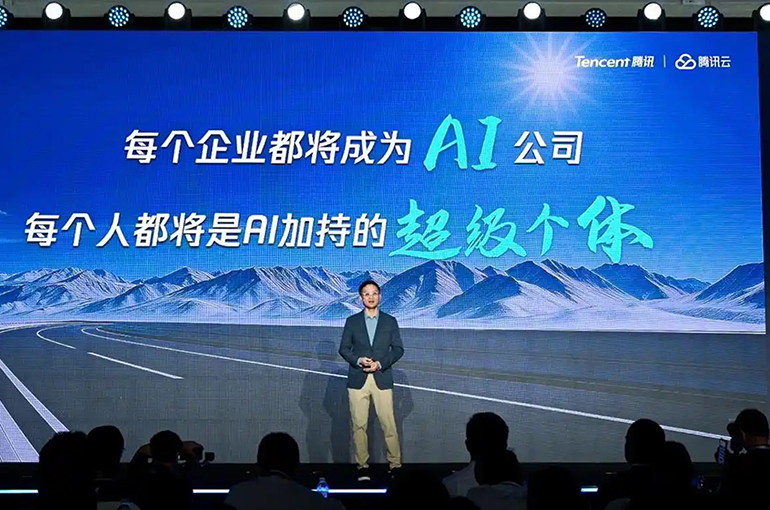 Tencent Focuses on LLMs, Agents, Infrastructure, and Knowledge Bases to Accelerate AI Adoption
Tencent Focuses on LLMs, Agents, Infrastructure, and Knowledge Bases to Accelerate AI Adoption(Yicai) May 21 -- Tencent Holdings will advance large language models and smart agents, build knowledge bases and upgrade infrastructure to accelerate the implementation of artificial intelligence, benefiting both industries and individuals, the head of the Chinese tech giant’s cloud division said during a summit focused on new AI tools.
Tang Daosheng, chief executive of the Shenzhen-based firm’s Cloud and Smart Industries Group, unveiled this four-pronged strategy at the 2025 Tencent Cloud AI Industry Application Summit today.
At the event, Tencent showcased its latest developments in LLMs. Earlier this year, the company launched the deep-thinking model Hunyuan T1, which outperformed GPT-4.5 and DeepSeek R1 on multiple benchmarks, alongside the fast-thinking model Hunyuan Turbo S -- the foundational model for T1 designed for rapid-response scenarios.
Tencent also enhanced its multimodal capabilities, presenting T1-Vision, a model that supports multi-image input for visual deep reasoning; the Hunyuan Voice model for end-to-end voice interactions; Image 2.0 for real-time live images; and Hunyuan 3D for generating 3D videos. Currently, the Hunyuan LLM is deeply integrated into various Tencent products, including social media app WeChat, instant messaging platform QQ, AI chatbot Tencent Yuanbao, Tencent Meeting, and Tencent Docs.
The company has enriched its cloud platform with AI agents, allowing users to create automated and flexible workflows on Tencent Cloud. This enables enterprises to build intelligent agents that “understand the business, can execute tasks, deliver results, and ensure strong security,” supported by various construction modes and tools, Tang explained.
Regarding databases, Tencent highlighted Tencent LearnShare -- a corporate knowledge base and learning platform that includes documentation, Q&A, events, polls, forums, and classrooms -- as well as the Ima.Copilot AI workstation, which integrates search, reading, and writing functionalities for individuals and teams. Tencent is also accelerating infrastructure upgrades to achieve high-performance inference at lower costs.
“The vitality of technology arises from the industry and thrives in the ecosystem,” Tang said, adding that Tencent will continue embracing an open mindset, collaborating with developers and ecosystem partners to deepen its focus on algorithms, refine tools, and innovate across diverse scenarios.
Chairman Ma Huateng noted in the first-quarter earnings report that AI capabilities are already making tangible contributions to businesses, including performance advertising and evergreen games. The company has increased spending on new AI opportunities such as the Yuanbao chatbot app and AI integration in WeChat, he added
Ma expressed confidence that existing high-quality revenue streams would help Tencent absorb the additional costs related to these AI investments and support healthy financial performance.
“We expect these strategic AI investments to create value for users and society, and generate substantial incremental returns for us in the long term,” Ma concluded.
Editor: Emmi Laine